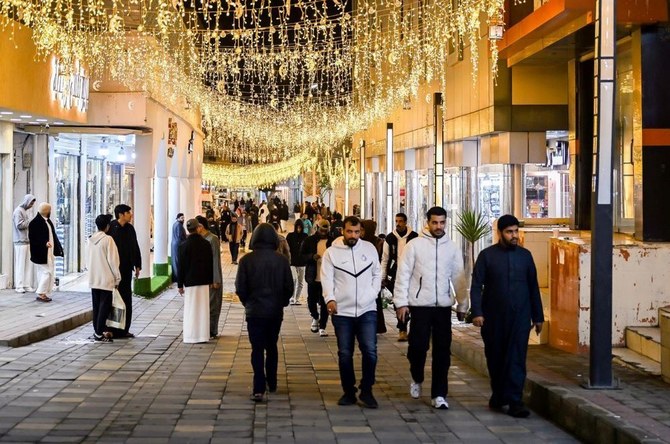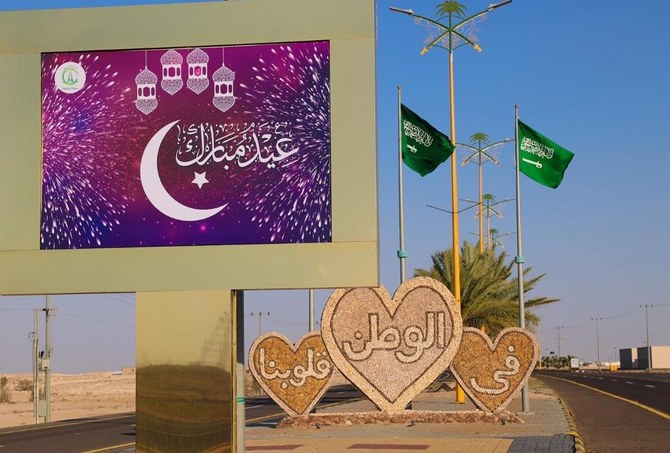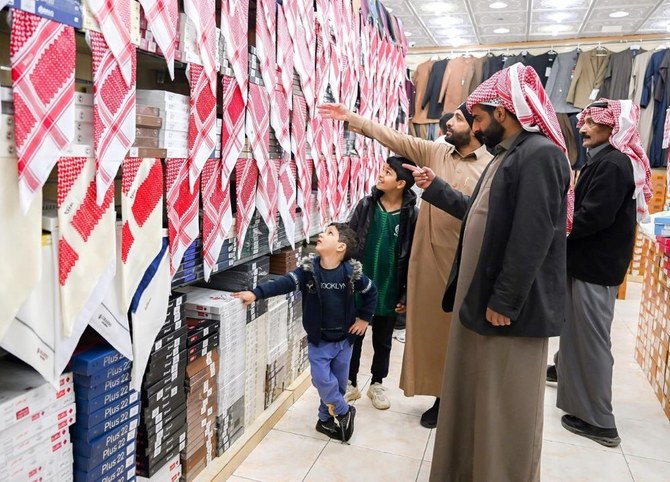RIYADH: It looked like a tale of two cities on the roads of the Saudi capital on Tuesday morning with offices closed for the Eid Al-Fitr. While many streets wore a deserted look, the shopping malls were bustling with crowds as Riyadh residents rushed for last-minute Eid shopping.
Hanan Al-Harbi, a Riyadh resident, told Arab News: “People along with their children flock to shopping centers for new garments, chocolates and Eid gifts to be shared with the relatives and friends on the joyous occasion of Eid Al-Fitr, the most celebratory occasion in the Islamic calendar.
“I have visited some of the shopping malls in the city today and last night, and I found them crowded with people busy doing last minute Eid shopping. The good thing is streets are empty due to Eid Al-Fitr holidays, so the drive is easy and it takes less time to be at the shopping center.”
However, Al-Harbi added that Riyadh will experience more traffic at night as people go out with family and friends on the eve of Eid.
“You will see the Eid spirit here everywhere you go tonight. The streets decorated with colorful lights at night are going to be more busy and everything that is dull during the day will come to life at night for the biggest celebration in the Islamic calendar,” she said.
Manzar Siddiqui’s regular drive to the Aziziah fruits and vegetables market on Tuesday morning was more hassle-free than usual.
“The roads leading to the market were practically empty, and it took me only 15 minutes to drive from my home compared to the usual half an hour,” he said.
However, when he got to the market, the scene was different.
“The fruits and vegetables stalls were moderately busy, and the meat section was packed as people rushed to buy mutton and chicken as it is the Eid Al-Fitr party time. I had to wait for 20 minutes to place my order. On regular days, we just visit the shop and place the order,” said Siddiqui.
For Mahfooz Shaikh, who has just moved to the city, a planned quick visit to the mall turned into a long ordeal.
“I thought it would be empty in the afternoon, and I could get my Eid shopping done quickly, but I think every other person in Riyadh thought the same. It was crowded, and getting a parking spot was a tough task,” he said.
Amid the week-long Eid Al-Fitr holiday to celebrate the festival with zeal and fervor, the General Entertainment Authority has announced a packed calendar of events, from theater to concerts and daily firework displays at locations across the capital.
Tuesday is the final day of the holy month of Ramadan. Eid celebrations commence on Wednesday, with Eid Al-Fitr prayer to take place across the Kingdom shortly after sunrise, and thorough arrangements made to accommodate worshipers for the annual prayer.
The Ministry of Islamic Affairs, Dawah and Guidance has issued directives to hold Eid Al-Fitr prayers 15 minutes after sunrise, in accordance with the Umm Al-Qura calendar.
In a circular, the ministry said that Eid Al-Fitr prayers will be conducted at the designated open prayer grounds, as well as in all mosques except for those adjacent to prayer grounds, ensuring all necessary services, including maintenance, cleaning and operation, are in place so that worshipers can perform their rituals with ease and comfort.































